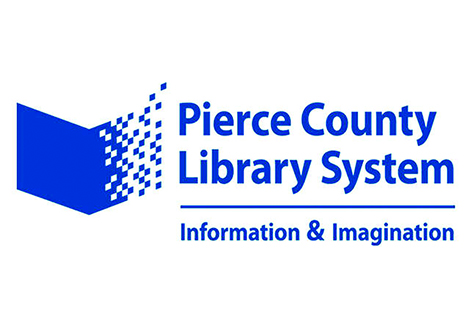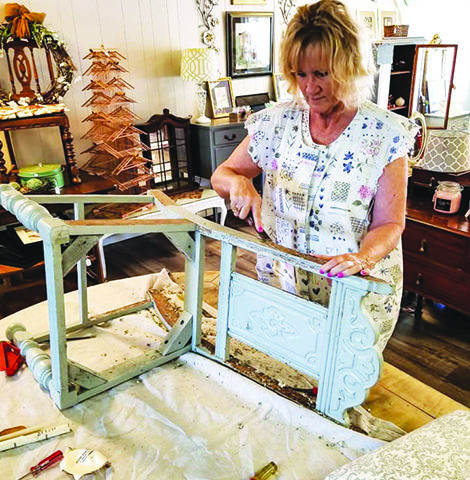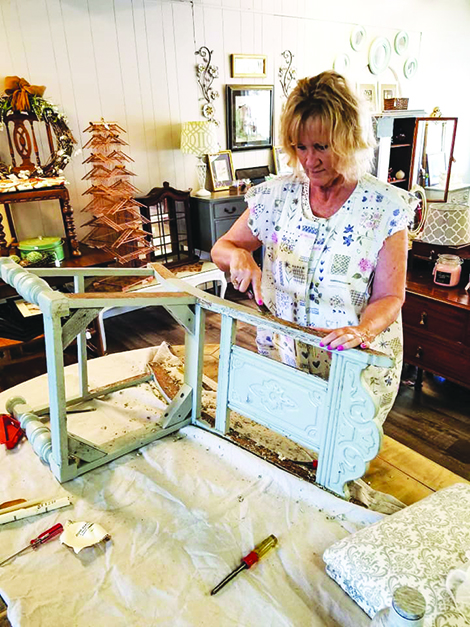(Editor’s note: Steve Kruse, who has written on other subjects previously for Senior Scene, suffered a stroke recently. In this article, he offers his perspective on being a stroke survivor and the risks and warning signs of a stroke.)
When I realized I had a stroke, I panicked I might never be able to write again. My speech was messed up a little, but in my universe, I write, therefore I am.
Luckily, most
of my faculties were restored within 24 to 48 hours from the time the medics
rushed me from Lake Spanaway
Golf Course to St. Joseph Medical Center’s stroke ward in Tacoma.
I don’t
remember much of the details, other than it happened somewhere on the fifth hole
and was witnessed by several of my old pals who were my playing partners that
day. For some reason I suddenly couldn’t hit the ball. I missed it by a mile,
which is not uncommon for me. I am a horrible golfer, so no surprise. However,
it persisted. I was still not able to hit the ball, not even close. I remember
trying six or more times, but then decided to simply watch my friends complete
the nine-hole round rather than slow everyone else.
I also had
some issues in talking with my friends in those remaining several holes, but
nothing I was worried about, other than wanting to just go to my truck and head
home. I refrained from talking much during those final four holes to the clubhouse.
My friends insisted
I stop at the restaurant in the clubhouse, as they could tell that my behavior
wasn’t right. I was having a hard time with my speech and comprehending what
they were saying to me.
By the time
the medics arrived I was thinking of leaving, but my friends and the management
at the golf course wouldn’t let me. However, when I realized I couldn’t
remember my name or birthdate, I knew it was time to go in the ambulance–a ride
I don’t remember much at all, other than the CT scan at the hospital. I was
still disoriented, having memory problems, and slurring my speech.
I first remember
feeling I was recovering about the time I was admitted to my room in the stroke
ward, shortly after the doctor confirmed my preliminary tests. It was firm: I
had a small stroke in the frontal lobe.
At that
point, the reality set in along with some emotions. I wasn’t sure what to
expect or if there would be any long-term consequences. My main thought was I
would never want to be a problem for my family or friends.
I ended up
sleeping most the day and night at the hospital. I also had an MRI, while they
continued to bring down my high blood pressure that typically accompanies a
stroke, they explained. Of course, the MRI basically confirmed the small
stroke, maybe a little bigger than first thought.
In short, I
took a hit in the speech and reading area, possible language and concentration areas. A big percentage of people
lose motor control over muscles, arms, face, etc., but none of those were a
problem for me.
I was extremely
lucky, but I still don’t understand why it happened to me, even though nearly
795,000 people have a stroke in the United States every year, with 137,000
deaths, according to the American Heart Association (AHA) and Strokecenter.org.
The majority is around 610,000 first-time strokes, though 185,000 (roughly 30
percent) are most likely to have another stroke within five years.
Layout
note: copybreak header or use dropcap. STROKE RISK HIGH FOR OLDER FOLKS
In general, a
stroke is the leading cause of death and disability in the U.S., with nearly 75
percent of those 65 years or older.
At 69 years
old, looks like I’m a prime candidate for another stroke and need to take
better of my health, as well as do a better job of recognizing when I’m having
one. I also need to understand better what happens in a stroke.
For starters,
my stroke was an “ischemic,†which makes up about 87 percent of most strokes. A
“hemorrhagic†stroke is around 13 percent.
In general,
the ischemic occurs when a blood vessel supplying blood to the brain is
obstructed.
Hemorrhagic
strokes are caused by a weakened blood vessel, ruptures or even an aneurysm. High
blood pressure is associated with all strokes, but specifically with the hemorrhagic.
In fact, the American Stroke
Association has several classifications for strokes, including a
Transient Ischemic Attach (TIA), a “mini stroke,†Cryptogenic Stroke, and Brain
Stem Stroke.
Though age is
the biggest factor in having a stroke, African Americans have twice the risk as
white people. Hispanic Americans and Indian/Alaska Americans are also at higher
risk than whites, but not as high as African Americans.
Strokecenter.org,
an independent web resource for stroke-related information, also notes that men
are more likely to have a stroke than a women, and the highest U.S. stroke
death rates are slightly higher in the southeastern states.
Any of the
following can easily increase your chance of a stroke:
- High
blood pressure.
- Diabetes.
- Heart
disease.
- Previous
stroke or TIA.
- Cigarette
smoking.
- High
cholesterol.
- Too
much alcohol.
- Drug
abuse.
- Overweight.
- Lack
of exercise.
- Being
pregnant.
- Menopause.
- Family
history and genetics.
- Genetic
conditions.
Unfortunately,
I hit a lot of the checks on the list of risks (like most people), including the
fact I am old (69), have high blood pressure, diabetes, high cholesterol, and
some bad genes, I suspect.
However, to
my credit, I have lost 55 pounds since January through a strict diet and exercise
to the point I feel healthier than ever at 170 pounds. In fact, my doctor has slowly
reduced some of the Type 2 diabetes and blood pressure medications.
I don’t
smoke, don’t drink, don’t abuse drugs and don’t eat any sodas, processed food,
sugar or treats. My normal meal is baked chicken and steamed vegetables or
salad.
My doctor,
Cory Sullivan at Hawkes-Prairie Family Medicine (Providence Health and
Services), tells me I’m in fairly good shape for my age and have been a model patient
the past several years. As he said, I may have been lucky with this stroke due
to my better overall health. It could have been worse with the extra weight and
higher blood pressure I was packing less than nine months ago.
So, if I
dodged a bullet this time, I need to be more diligent, as this stroke greatly
increases my risk of having one again. Best I can do at this point is simply
continue with my healthy diet and keeping the weight down, as well as exercise
or at least being active each day.
Perhaps the
most important lesson for me is to do a much better job of recognizing the
symptoms of a stroke in the first place. Fact is, I didn’t realize or
understand I had a stroke until I was at the hospital. I should have recognized
my symptoms instead of spending more than an hour denying I had a problem.
That
additional time makes a huge difference in helping your chance of greatly
mitigating a stroke. Main thing the therapist and nurses at St. Joseph drummed
into me is to remember the main stroke symptoms in the acronym FAST:
COPY/LAYOUT NOTE: Boldface first
letter of bulleted sentences to reflect the FAST acronym in previous graph.
- Facial drooping. Face typically droops
on one side.
- Arm weakness. Hard to raise arm fully.
- Speech difficulties. Sluggish speech,
inability to understand or comprehend fully.
- Time to call emergency services. The
sooner the better.
The sooner
you recognize you are having a stroke, the better chance you have of living
through it.
While I can’t
say I’m 100 percent yet, I’m a good 95 percent as far as my speech and
writing/reading comprehension. I’ve recovered quickly from the point I could
not remember my name, though I still forget a word now and then, and
remembering the best use of words isn’t always there.
I’m following
the advice from all the experts and my doctor – read, write, and talk as much
as I can each day. Good thing is I have abundant passion for each of these
activities.
Again, I
consider myself extremely lucky that I was with good friends who saw I wasn’t
right and didn’t take my guff about not wanting to go to the hospital. And even
luckier that I had a great hospital and medical services.
I hope I don’t have a stroke again, but I’m more educated now and will be more aware and responsive in the future.
Steve Kruse is a former newspaper editor and computer technology industry executive. Now retired, he also has managed youth baseball organizations in California.
 The finalists to be the new executive director of Pierce County Library System will be formally introduced to the public March 7 during a digital presentation that will include an opportunity to learn about them, ask them questions, and hear their ideas for the future of the libraries.
The finalists to be the new executive director of Pierce County Library System will be formally introduced to the public March 7 during a digital presentation that will include an opportunity to learn about them, ask them questions, and hear their ideas for the future of the libraries.

